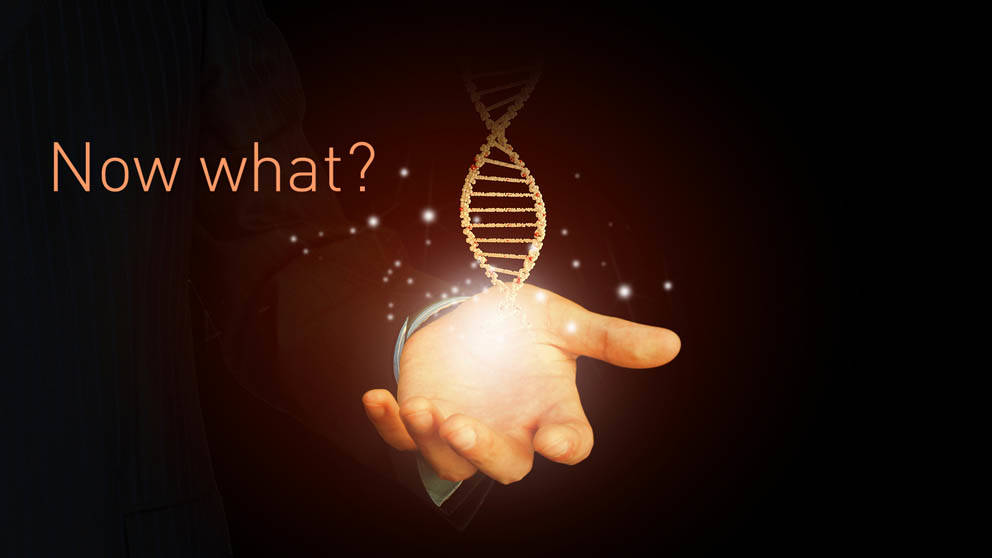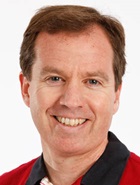 “Life's but a walking shadow, a poor player that struts and frets his hour upon the stage and then is heard no more: it is a tale told by an idiot, full of sound and fury, signifying nothing." Macbeth (Act V, Scene V). *
“Life's but a walking shadow, a poor player that struts and frets his hour upon the stage and then is heard no more: it is a tale told by an idiot, full of sound and fury, signifying nothing." Macbeth (Act V, Scene V). *
As I wrote in my prior post, it can be interesting to dive into one’s own genomic data, but for generally healthy people, most of its meaning remains elusive. We have millions of genomic variants — sequences that differ slightly from individual to individual — that make us unique, but also make interpreting genomes incredibly difficult. What are known as “variants of uncertain significance” (VUS) remain far more numerous than those for which we can report something, anything of possible clinical importance. My genome report had roughly 68 times more VUS than known variants, and that’s pretty typical, at least from my anecdotal experience.
So what does a person do now that it’s so much easier access to obtain genomic data of some kind? Whether it’s through spit test genotyping (think 23andMe), whole exome or genome sequencing like I had, or a genetic test recommended by a doctor, the data we get back are daunting, and the reports are often filled with notations and associations that are seldom clinically relevant but can sound quite alarming nonetheless. And sometimes there is a variant that does significantly increase the risk of serious disease. Who can help us make sense of it?
One person who can is a genetic counselor. If you are fortunate enough to have access to one, that is. The last estimate I saw put the number of accredited genetic counselors in the U.S. as just over 4,000, meaning that there is about one genetic counselor for every 81,000 citizens, a ratio that is sure to cause problems in the near future. There is already more demand than supply for genetics counselors’ time, and we are only beginning to scratch the surface of sequencing in our population.
Fortunately for me, I was able to call Kate Reed, director of continuing education at The Jackson Laboratory. Reed educates health professionals in genomics, building upon her genetic counseling training at Johns Hopkins and the National Human Genome Research Institute, part of the federal National Institutes of Health. Her time in the clinic is understandably limited these days, but she still helps patients negotiate the difficult genomic landscape of cancer by training clinicians to understand and apply genetic information to patient care. The following is excerpted from our conversation about genetic data and counseling in cancer risk assessment and treatment.
If I went to see you, sequence data in hand, what would you do?
Reed: First, I would take a detailed personal and family history. You’re a healthy adult, and we still typically learn more about risk and susceptibility from your history than your sequence data. We have to be aware not to put too much in the genetics basket. For example, say you were a smoker. I can tell you that you are at a greater risk of cancer from some of your variants, but that risk would be minor in the larger context. The most important information is you use tobacco, and the most effective change would be to stop smoking.
Do people put too much in that “genetics basket” sometimes?
Reed: Sometimes. We have to be careful of genetic exceptionalism, though most people can understand the complexities of risk if it is put into context. Access to genetic information is expanding quickly, and most people just look at the front-line information, not the important details, including the limitations of a particular test. That can create confusion for patients and clinicians alike.
What are some of the problems you’ve seen?
Reed: It’s not common yet, but I’ve heard about patients coming to genetics counselors and other types of clinicians with data obtained directly from a place like 23andMe. Third party analysis services are springing up to interpret those data, which may generate a whole list of cancer susceptibility variants that look quite alarming. The thing is, the original direct-to-consumer testing protocols aren’t designed to provide clinic-level results. If the patient later gets much higher quality sequencing from a validated cancer panel in a clinical lab ordered by a clinician, they may not find the same variants. The original test results were a false alarm, and the patient has gone through the anxiety and second round of testing for nothing.
Yes, I know my sequence is research grade, so I don’t put too much stock in it, but I still have these variants for prostate cancer…
Reed: Start with your family history rather than the variants. Prostate cancer is very common in the general population and there are likely numerous variants that contribute small amounts to risk.
So where is genetic testing most useful?
Reed: In cancer, the more people that get tested, the more we learn about the spectrum of disease. For example, we’re learning more about highly penetrant genes like BRCA1 and 2, which should get sequenced if someone has a family history of certain cancers. Early on we would have predicted a very high likelihood of breast cancer from some variants, upwards of 80%, but now the range of risk has grown. The risk is still much higher than the 12% general population risk, but not as high as it was originally thought. With more data, from more people being tested, we can better advise people based on their specific BRCA variants. In addition, most clinical panels test many other cancer genes, so it goes far beyond BRCA1 and 2 now. The hope is the more we learn, the more personalized information and, eventually, treatment we can offer patients.
That’s a lot of information for patients to sift through, so it’s easy to see the importance of genetic counseling to help them — and their oncologists — with that. Where do you see the profession headed?
Reed: Genetic counselors are becoming more specialized in many areas as we understand more about the genetic contribution to disease. Ideally, genetic counseling should be part of the entire diagnosis and treatment process once a patient is identified as being at increased genetic risk. Pre-test counseling sets the stage for the patient to make an informed decision about testing: What the results could be and how they might influence medical decisions, and how comfortable the patient is with uncertainties regarding the data and treatment options. Uncertainty is much more likely with the growth of testing panels at this time, so this conversation is extremely important. After the test, the genetics counselor is in a much better position to help the patient interpret the data if he or she has had this initial conversation.
Our conversation again underscored just how much uncertainty remains in genomics, even in cancer, where it already provides huge clinical benefits. Given my family history, I’m grateful to have no penetrant cancer variants and am content that my sequencing didn’t reveal anything particularly “useful” in this area. That said, I will monitor things going forward as any 50-year-old should.
Next I will focus on the variant I have that does have some clinical weight — ApoE4 and the higher relative risk of Alzheimer’s disease it brings. I will speak with Gareth Howell, a professor at The Jackson Laboratory who is investigating Alzheimer’s disease mechanisms at their earliest stages and seeking understanding of how genetics, environment and behavior can set the stage for this devastating neurodegenerative disease.
*For some reason, this quote comes to mind on occasion when I think about consumer genomics. (Yes, that’s probably a reason why I’m not invited to many parties.) I’m no Shakespeare and am taking egregious interpretive license, but it strikes me that genome sequences provide us with an opportunity to better define our lives, at least in a scientific context. We can learn about what we’re actually made of, ephemeral though we may still be. Unfortunately, we’ve encountered more sound and fury than anything else so far, but I expect the promise of meaning to be fulfilled over time.
 Mark Wanner followed graduate work in microbiology with more than 25 years of experience in book publishing and scientific writing. His work at The Jackson Laboratory focuses on making complex genetic, genomic and technical information accessible to a variety of audiences. Follow Mark on Twitter at @markgenome.
Mark Wanner followed graduate work in microbiology with more than 25 years of experience in book publishing and scientific writing. His work at The Jackson Laboratory focuses on making complex genetic, genomic and technical information accessible to a variety of audiences. Follow Mark on Twitter at @markgenome.